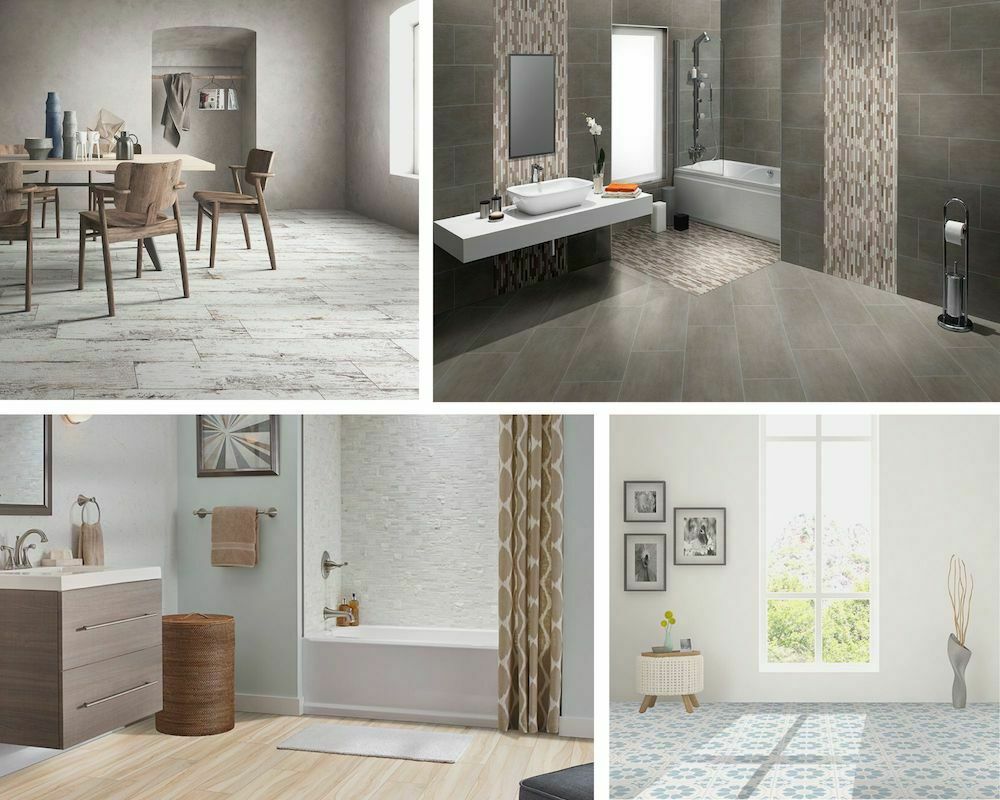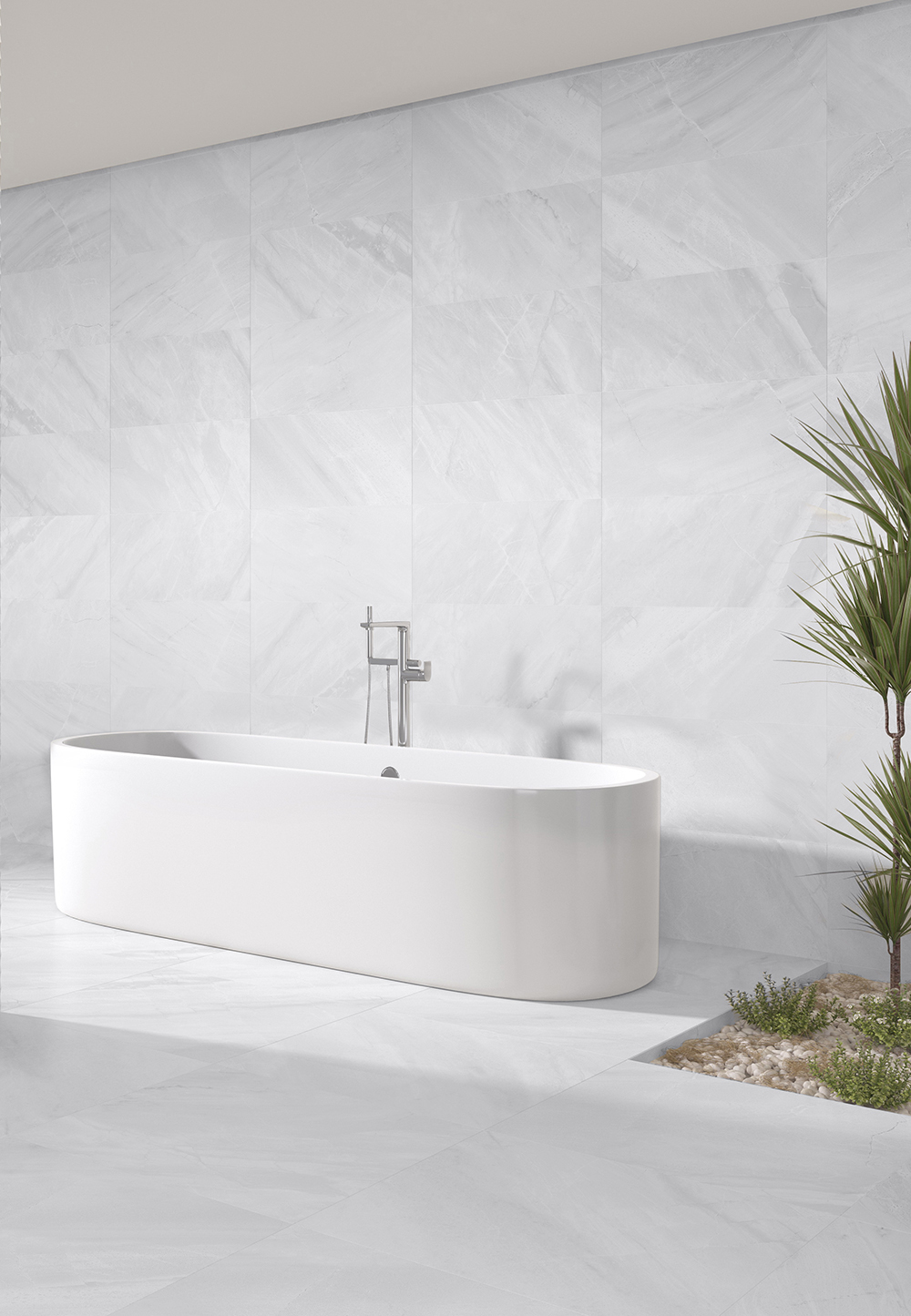Embracing Sustainability With LEED-Certified Porcelain Tile By MSI
January 10, 2024
In an era where sustainable building practices are not just valued but essential, the choice of materials used in construction and design plays a pivotal role. This is where LEED-certified porcelain tile comes into the picture, offering both aesthetic appeal and environmental benefits. At MSI, as a LEED-certified company, we stand at the forefront of this sustainable movement, providing products that align with these eco-conscious principles.
Let’s delve into the significance of a LEED certification and how MSI's commitment to this standard elevates the quality and sustainability of our porcelain tile collection.
Understanding LEED Certification
LEED (Leadership in Energy and Environmental Design) certification is an internationally recognized green building certification system, overseen by the U.S. Green Building Council (USGBC). This certification serves as a benchmark for the design, construction, and operation of high-performance green buildings. It encompasses a comprehensive set of criteria covering energy efficiency, water conservation, CO2 emissions reduction, improved indoor environmental quality, and stewardship of resources and their impact on the environment.
 Gridscale Concrete Porcelain Tile
Gridscale Concrete Porcelain Tile
Tile flooring that is LEED-certified, or contributes to LEED points, has met stringent sustainability and environmental criteria. These criteria include efficient use of resources and energy, reduction of pollution, sustainable manufacturing processes, and creation of healthier indoor environments.
MSI's LEED Certification and Contribution
As a LEED-certified company, our commitment to sustainability is embedded in our business model and product offerings. This certification indicates that we at MSI not only adhere to high standards of environmental responsibility in our operations but also contribute to the overall sustainability of the buildings where our products are used.
Read on to learn how MSI's certifications contribute to the quality of our eco-friendly porcelain tile.
Resource Efficiency
Sustainable Materials: MSI prioritizes the use of materials that have a lower environmental impact. This includes recycled content and sustainably sourced raw materials, which are key to reducing the ecological footprint of our products.
 Kenzzi Tamensa Encaustic Porcelain Tile
Kenzzi Tamensa Encaustic Porcelain Tile
Efficient Processes: We also employ advanced manufacturing processes designed to optimize material usage. This approach minimizes waste during production, ensuring that every resource is used effectively and efficiently.
Energy and Water Conservation
Energy-Efficient Production: MSI has implemented state-of-the-art technology and practices in our manufacturing facilities to reduce energy consumption. This includes using renewable energy sources where possible and optimizing machinery and processes for maximum energy efficiency.
 Vintage Lace Porcelain Wood Look Tile
Vintage Lace Porcelain Wood Look Tile
Water Usage Reduction: Water conservation is a critical aspect of our production process. We employ techniques such as water recycling and the use of closed-loop systems to minimize water wastage, ensuring that the water footprint of each tile is as low as possible.
Indoor Environmental Quality
Low VOC Emissions: MSI's porcelain collection is designed to have low volatile organic compound (VOC) emissions. This is crucial for maintaining healthy indoor air quality, particularly in enclosed spaces like homes and offices.
Health-Focused Design: Our porcelain tile is crafted to resist mold and mildew, contributing to a healthier indoor environment. This aspect is particularly important for spaces where air quality directly impacts human health and well-being.
Sustainable Manufacturing
Emission Reduction: MSI focuses on reducing emissions throughout our manufacturing process. This includes the use of cleaner fuels and the implementation of processes that produce fewer greenhouse gases.
 Aspenwood Artic Porcelain Wood Look Tile
Aspenwood Artic Porcelain Wood Look Tile
Resource Conservation: With our sustainable flooring, we are committed to conserving natural resources by implementing recycling programs and using energy and materials more efficiently throughout the production cycle.
Contribution to LEED Points
Diverse LEED Categories: MSI's porcelain tile contributes to various LEED categories, including Materials and Resources, Indoor Environmental Quality, and Water Efficiency. This multifaceted contribution is essential for projects aiming for LEED certification.
Support for Green Building: By incorporating MSI’s products into their projects, builders and architects can earn LEED points, which are crucial for achieving different levels of LEED certification. This support extends beyond individual products to encompass the broader goal of our sustainable building practices.
The Impact of Choosing MSI’s LEED-Certified Porcelain Tile
Choosing MSI’s LEED-certified porcelain tile means making a decision that goes beyond aesthetics. It reflects a commitment to environmental stewardship, sustainable living, and responsibility towards future generations. By opting for our porcelain tile, consumers and builders not only contribute to the beauty and functionality of their spaces but also support sustainable building practices that have a lasting positive impact on our planet.
To learn more about MSI’s certifications and our commitment to the environment, chat with us online, visit one of our nationwide showrooms, or contact your local authorized MSI retailer.
LEARN MORE ABOUT PORCELAIN AND CERAMIC TILE
Exploring MSI’S Collection of Porcelain Wood Look Flooring and Wall Tile
Modern Meets Retro: Introducing Urbanslat and Metro White Ceramic Tile Collections
Bold Designs for Inspired Spaces: The New Zaria Encaustic Tile Collection
Porcelain Durability in Natural Stone Looks: Eden, Savoy, and Kaya Collections
 Adella Gris Porcelain Tile
Adella Gris Porcelain Tile
